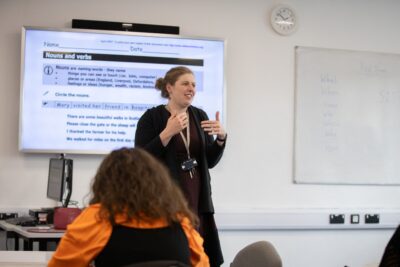Access to HE programmes are designed for adults who want to pursue their passion and start a new career.
Gain the skills to progress to Higher Education
An Access to HE course is a one-year programme designed for those who want to study for a degree, but do not have the required qualifications for entry. During the course, you will gain the skills, knowledge and confidence you need to progress to a higher level of study.

Access to Higher Education Diploma (Nursing)
Access to Higher Education Diploma (Nursing) PTD
Access to Higher Education Diploma (Education Professions)
Access to Higher Education Diploma (Health Professionals)
Access to Higher Education Diploma (Criminology)

I was inspired to do the Health and Social Care course from my career path. I have been a carer since I was 18, but never thought about doing nursing as I never thought I was good enough or clever enough. It was during the pandemic that it came to fruition. There was a lot less staff as people were isolating and there were so many things that we ended up taking on that we hadn’t been trained to do. It was completely out of my comfort zone. I thought If I can do that, under all that pressure, without the training, then I can do the nursing course.”
Chesterfield College Open Day
Thinking about studying at college? Come along to one of our Open Evenings to learn more about the many courses and apprenticeships we have to offer.



